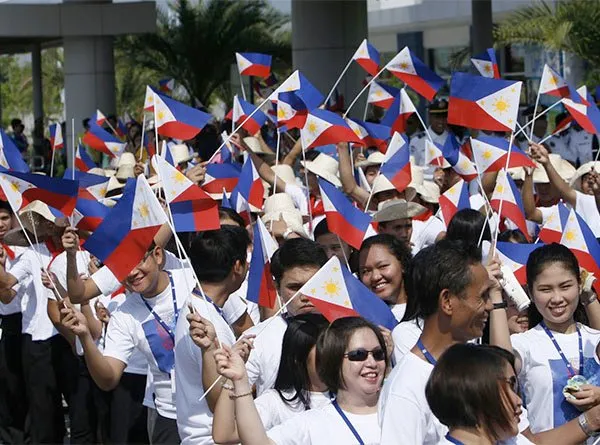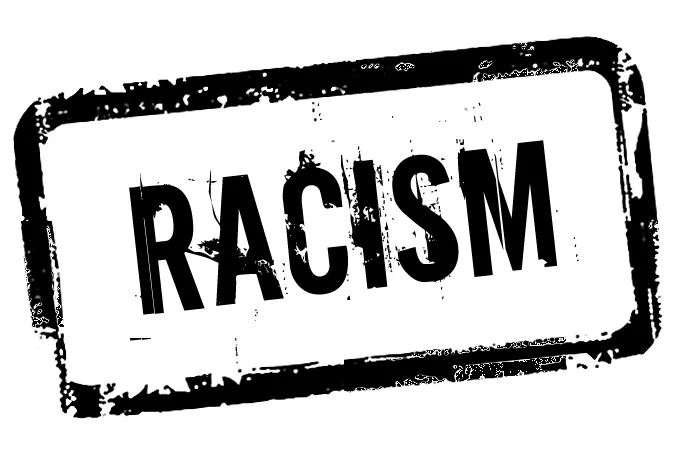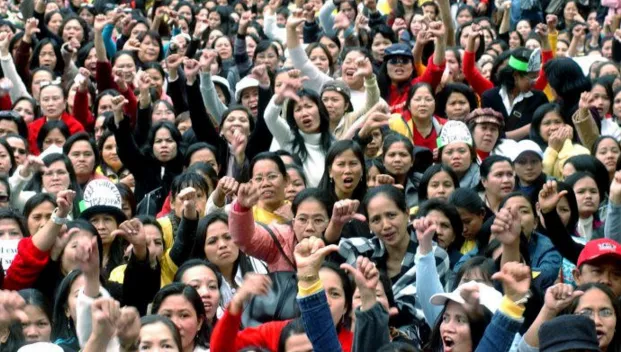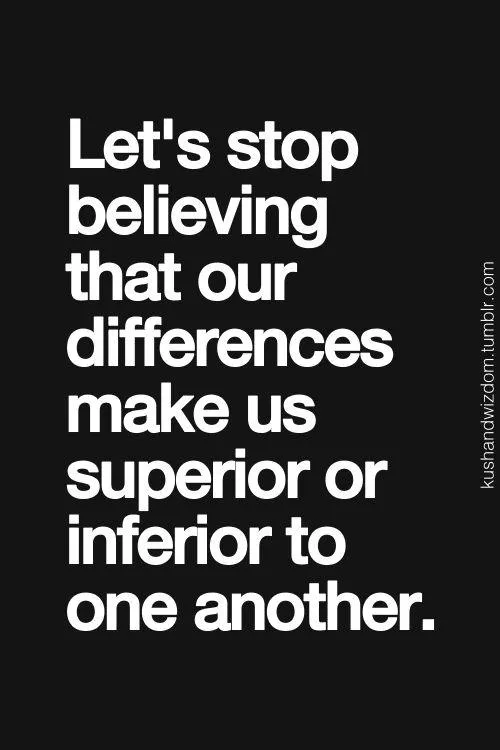The Hierarchy of Racism: The Filipinos at the Bottom

Image Source
Racism is a common word in the United States. Whenever there is discrimination, Americans usually see to it as a racist action. When there is a movie about the blacks and the whites or whatever there is an appearance of the both colors to whether a color is above the other one, analyzing it using racism is the first move towards criticism.
In the global view, when Asian people get to be nagged around places in the West, it is still called racism. This time, it is the region that becomes the basis for the discrimination, not the colors. Many Western people think they are superior which Asian people should look up to. When the Americans or Europeans tour around Asian countries, they are well entertained and guided. Asians get to be so friendly at them, do everything to make them satisfy as they tour around. They have to make sure their countries would not be hated after the visit. But when Asians travel to America or Europe, they are not VIPs unless they are rich that they can afford full accommodation.
Among Asian people, Filipinos are the most discriminated ones, if not any. It is the thought that the Chinese people are always better than Filipinos. South Korean people are always better than Filipinos. It can also be said that Korean people are better than the Vietnamese, but these Vietnamese are better than Filipinos. It is some sort of an undebated explanation that in every hierarchy of Asian civilization, the Filipinos come to be at the bottom. Despite the export of great talents from the Philippines, nothing elevating on the pride of the Filipinos happens.

Image Source
Filipinos are publicly being discriminated abroad. There are many reports stating the same atrocities. The worst is death cases where they got killed by their bosses. Discrimination does not end there. No justice has ever been served to them. The dead bodies were just delivered to the families afterwards without any other step on how to pay for what happened. On the other case, during job seeking, professional Filipinos always end up being caretakers, housekeepers and other jobs that can demoralize them. It seems like their education in the Philippines is useless in other countries. However, there are few who were lucky to obtain decent jobs abroad, but they are mostly not given the same opportunity.
Filipinos are hardworking people. In fact, they are one of the most productive in the workplaces abroad. Many employers like to hire them as caregivers but only treat them as slaves. But they do not let go of the discrimination when professional jobs are concerned. They are discouraged from applying for professional jobs even if they can provide diplomas alongside their resumes. As slaves, they love Filipinos, but as employees, they do not. Some cases also when Thai, Chinese, Korean, or even Vietnamese people are being hired rather than Filipinos. And when Filipinos happen to get hired, they only occupy the lowest position in workplaces.
Aside from slaves, some words such as aliens, monsters, terrorists, evils, ignorant, uncivilized and animals are what the non-Filipinos call them. The Filipinos would probably react to this, but they seem to be ignoring these just to continue working abroad because they only think about the welfare of their families in the Philippines. They tend to ignore bad labelling and make it as a habit to earn a living. The real reaction would only happen inside the Philippines, but when they go abroad, they forget about it. Yes, they are good at hiding pain. They keep on enduring the pain for the sake of living. The worst case is when the Philippine government is not doing something about it. The only role of government is whether to carry the responsibility of transporting the dead bodies or giving psychological and medical treatment to Overseas Filipino Workers who are traumatized by harassments abroad with additional allowances, so the people could always say it has become normal to get killed abroad. It should not happen, but it is happening.

Image Source
Inside the country, Filipinos are also fighting in a racist manner. Reflected from the US basis of racism, dark-colored Filipinos are usually being discriminated by the light-colored one, so there is no doubt of why whitening soaps are everywhere in the Philippines. By history, Americans colonized the country and act as the savior of the Filipinos from ignorance. As a result, Filipinos started to like white people rather than the blacks. While the Americans in these years imported black Africans for slavery in their homeland and they never treated the blacks as human beings, and they brought this culture to the Philippines, they also taught the Filipinos in public schools how they save the country and the world that they should look up to them including their color. This time, the blacks in the US were not still considered as US citizens.
If one is a Filipino, he or she gets to be treated badly. It becomes worse if he or she is a black (dark-colored) Filipino. The discrimination becomes doubled. Literally, there are really no black Filipinos, but Western people including light-colored Filipinos see the dark color as entirely black. For them, there are only white and black, and white is better than black.
Meanwhile, Filipinos are so focused with the issue of poverty, landlessness, and other economic-related problems. They forget about this one issue that is older than the above-mentioned. Filipinos cannot still progress if racism persists at their own homes. So what if they manage to solve hunger, would the country progress as a whole?
The point there is to expose that there are group of people who are more attacked with racism than the Asians. Filipinos are Asians, too, but when someone is asked who the Asians are, he or she would probably answer Chinese or Koreans. Filipinos are always out of the equation. But when asked about slaves, Filipinos become the good example.

Image Source
